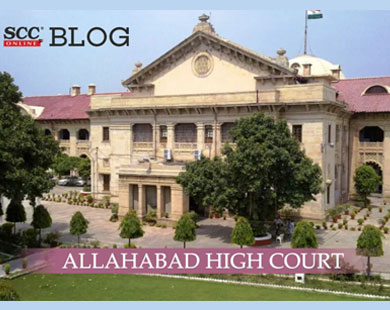Allahabad High Court: In an appeal filed under Section 37 of the Arbitration and Conciliation Act, 1996 by the Uttar Pradesh Expressways Industrial Development Authority (‘UPEIDA’) against an ad interim injunction order passed by the Commercial Court, directing the parties to maintain ‘status quo” with respect to the Performance Bank Guarantee(‘PBG’), furnished by the respondent contractor, the division bench of Attau Rahman Masoodi and Om Prakash Shukla, JJ. said that the law on interdicting an unconditional bank guarantee is settled, however the impugned order has been passed dehors to this settled position, thus, it is unsustainable in the eyes of law.
The Court viewed that the law with respect to grant of an injunction which has the effect of restraining encashment of a bank guarantee, is no longer res integra, and in U.P. Coop. Federation Ltd. v. Singh Consultants and Engineers (P) Ltd., (1988) 1 SCC 174, the Court has set aside an injunction granted by the High Court to restrain the realisation of the bank guarantee.
The Court relied on Vinitec Electronics (P) Ltd. v. HCL Infosystems Ltd., (2008) 1 SCC 544, and said that the first aspect to be taken into consideration is the bank guarantee itself, and the terms thereof. If the bank guarantee is conditional, then, if the conditions have not been fulfilled, injunction, against encashment and invocation, may unquestionably follow. If, however, the bank guarantee is unconditional, then injunction can be granted only if egregious fraud, irretrievable injustice, or special equities, exist, and not otherwise.
The Court noted that the bank guarantee in unequivocal terms says that any demand made by the UPEIDA on the bank shall be conclusive and binding, notwithstanding any difference between UPEIDA and the respondent or any dispute pending before any Court, Tribunal, Arbitrator or any other authority. Further, the bank has agreed that the guarantee contained shall be irrevocable and shall continue to be enforceable till UPEIDA discharges this guarantee.
The Court said that it must be understood that the jurisdiction of the Court to interfere, in such cases, is, however, not irrevocably foreclosed and as such the exceptions of egregious fraud, irretrievable injustice, or special equities have been devised by the court, to injunct the invocation of the bank guarantee.
Further, in view of the well crystallised law on the subject, the Court said that any reference to the original dispute between the parties, relating to the performance of the contract, is completely irrelevant, insofar as the issue of stay of invocation of the bank guarantees is concerned. That dispute has necessarily to form substratum of an entirely different proceeding, to be resolved either by arbitration or by adjudication by a Court. Thus, in the present interim proceedings, the enquiry is confined to, whether based on the documents, a case of fraud of egregious nature in the matter of furnishing bank guarantees, is made out or not.
The Court relied on Mahatma Gandhi Sahakra Sakkare Karkhane v. National Heavy Engg. Coop. Ltd., (2007) 6 SCC 470, wherein it was held that “the person in whose favour the guarantee is furnished by the bank cannot be prevented by way of an injunction in enforcing the guarantee on the pretext that the condition for enforcing the bank guarantee in terms of the agreement entered between the parties has not been fulfilled. Such a course is impermissible”. Thus, it held that the agreement between the parties, under which the bank guarantees could be enforced, cannot be cited as a ground to stay the invocation and encashment thereof.
Further, it was held that UPEIDA is a public sector undertaking and a ground of not able to recover from a PSU must be grounded on strong footings and not merely on apprehension or pleadings.
Moreover, the Court viewed that it cannot be said that, within the boundaries of the law relating to interdiction of invocation of the irrevocable bank guarantees, a case for such interdiction has been made out by UPEIDA in the present case, insofar bank guarantees are concerned. Thus, it held that, none of the three circumstances, in which stay of invocation of unconditional bank guarantees, can be granted by the Court, exists in favour of the respondent and as such it was not well within the jurisdiction of the Commercial Court to pass a status quo order, which in effect has interdicted the invocation of the performance bank guarantee.
[U.P. Expressways Industrial Development Authority v. Sahakar Global Ltd, 2022 SCC OnLine All 782, decided on 02-12-22]
Advocates who appeared in this case :
Counsel for Appellant:- Advocate Brijesh Kumar, Advocate Amal Rastogi, Advocate Utkarsh Srivastava;
Counsel for Respondent:- Advocate Pritish Kumar.
*Apoorva Goel, Editorial Assistant has reported this brief.


